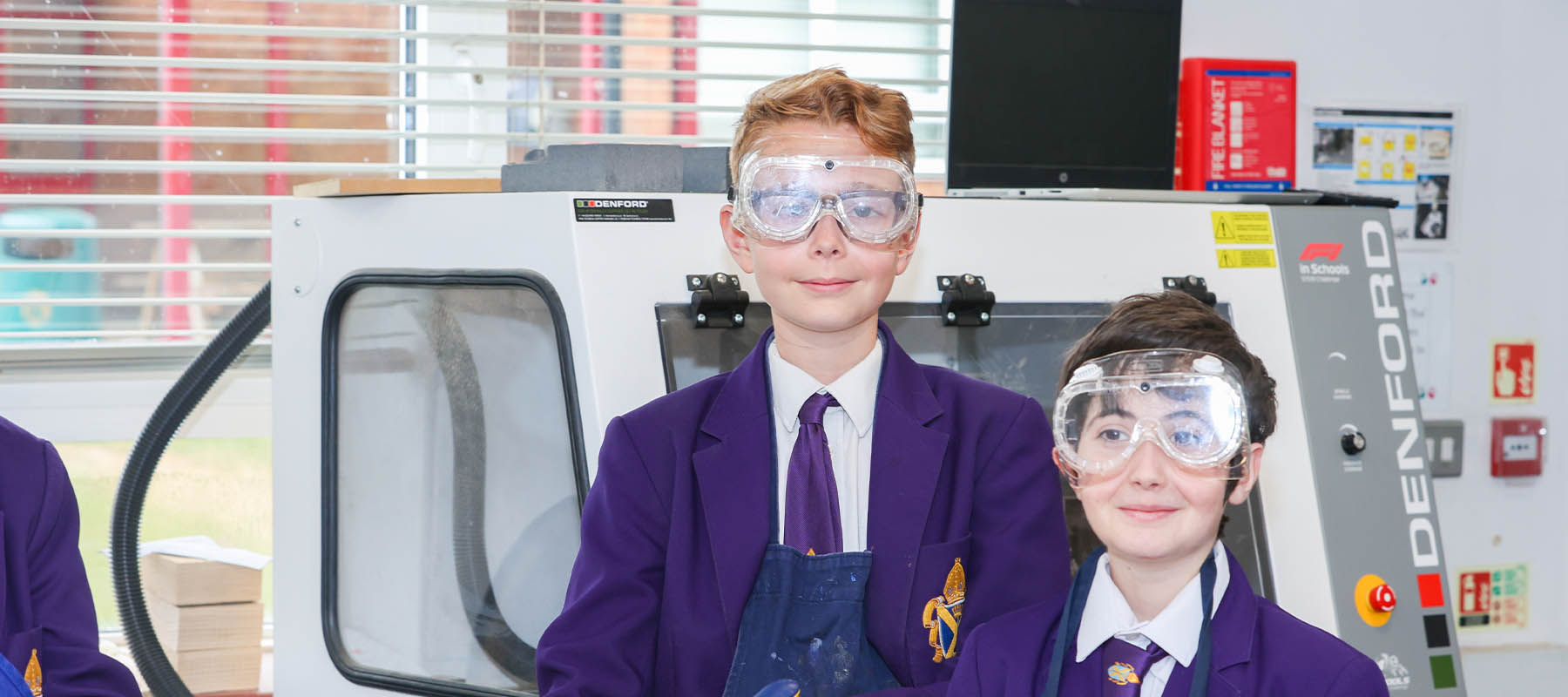KS4 Engineering
Engineering is a career path that can offer our students a wealth of opportunities for their future.
In the UK, and around most of the world, there is a huge shortage of Engineers. Engineering at Townsend aims to build the knowledge and skills to prepare our students for a career in Engineering as well as promoting Engineering as a viable career option for our students. Computer aided design is a hugely important aspect of Engineering, our students will become proficient in the use of industry standard computer aided design.
Engineering students at Townsend will:
- develop their knowledge of materials and their properties so that they can make reasoned decisions as to the best material selection for various applications.
- will understand the different engineering sectors and the products they produce as well as career opportunities within each sector.
- be able to read and understand engineering drawings, as well as be able to produce their own hand-drawn and CAD engineering drawings.
- develop knowledge and understanding of a range of tools, machines and processes.
- have an understanding of health and safety in an Engineering environment and have an understanding of health and safety requirements and legislation.
- develop their practical manufacturing skills alongside their acquisition of knowledge.
- be comfortable at using computer aided design to a high standard, in both creating CAD models, in exporting models to CAM and in creating engineering drawings on CAD to BS8888.
- be able to apply their skills to manufacture given products to a high standard.
Course Details
NCFE Level 1/2 Technical Award in Engineering
Specification – https://www.ncfe.org.uk/qualification-search/qualification-detail/ncfe-level-12-technical-award-in-engineering-671
Course Description
- This qualification is designed for students who want an introduction to engineering that includes a vocational and project-based element.
- The qualification will appeal to students who wish to pursue a career in the engineering sector or progress to further study.
- The study of engineering is the application of maths and science to solve real world problems. This involves an understanding of the different disciplines of engineering and how they have shaped the products and projects of the modern world.
- Students will be able to read technical drawings, select appropriate materials along with tools and machinery, and know how to carry out a practical task, working in a safe manner in line with current health and safety legislation.
- The qualification is graded:
- Level 1 Pass/Merit/Distinction/Distinction*
- Level 2 Pass/Merit/Distinction/Distinction* (equivalent to GCSE grades 8.5–1).
Programme of Study
Throughout this qualification, your learners will gain valuable knowledge of:
- Content area 1: Engineering disciplines
- Content area 2: Applied science and mathematics in engineering
- Content area 3: Reading engineering drawings
- Content area 4: Properties, characteristics and selection of engineering materials
- Content area 5: Engineering tools, equipment and machines
- Content area 6: Hand-drawn engineering drawings
- Content area 7: Computer-aided design (CAD) engineering drawings
Assessment
The qualification has 2 assessments externally-set by NCFE: one non-exam assessment and one written examined assessment.
- Non-exam assessment (NEA) Weighting (60%): Externally-set, internally marked and externally moderated
- Examined assessment (EA) Weighting (40%) Externally-set and externally marked:
Home Study
Students will be given homework tasks each week to complete, these will be set on Google Classroom
Where can Engineering take you?
Further Study
There are a wide range of opportunities for further study for learners who complete this qualification:
- A Level in Design Technology or Physics
- Level 2 Technical Certificate in Engineering
- Level 3 Applied General in Engineering
- Level 3 Technical Level in Engineering
- An apprenticeship sector such as Aerospace Engineer or an Electrical/Electronic Support Engineer or Engineer
- A wide range of university courses for those wishing to pursue a career in engineering
Careers
- Aerospace Engineer
- Agricultural Engineer
- Automotive Engineer
- Biomedical Engineer
- Civil Engineer
- Computer Engineer
- Design Engineer
- Electrical Engineer
- Mechanical Engineer
- Software Engineer
How parents can support their child’s learning
- Discuss your child’s learning with them on a regular basis, ask them what learnt in their lesson, ask your child to teach you something that they learnt today as this will help to consolidate their learning.
Useful Links
The links below will assist students with various aspects of Unit 1.
- Health and Safety at Work Act – http://www.legislation.gov.uk/ukpga/1974/37/contents
- Royal Academy of Engineering – http://www.raeng.org.uk/
- The Institution of Engineering and Technology – http://www.theiet.org/
- How Stuff Works – http://www.howstuffworks.com/
- Engineering Tips – http://www.eng-tips.com/
- Risk at Work – PPE – https://www.hse.gov.uk/toolbox/ppe.htm
- PPE at Work – https://www.hse.gov.uk/pubns/indg174.pdf
- Technology Student – http://www.technologystudent.com/
- https://www.hse.gov.uk/riddor/
- http://www.hse.gov.uk/coshh/
- http://www.bbc.co.uk/education/subjects/zvg4d2p
- http://www.young-engineers.co.uk/


